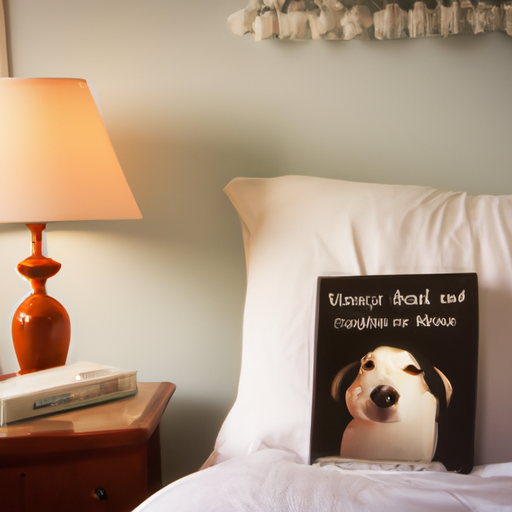Introduction
You’ve likely found yourself, at least once or twice, watching your furry friend pacing restlessly around the house, seemingly unable to settle down and get some much-needed sleep. And if you’re like most dog caregivers, you’ve probably wondered, “What can I do to help my dog sleep better?” This guide is designed to help you understand the factors affecting your dog’s sleep and provide you with practical tips on how to improve it.
Understanding Your Dog’s Sleep Patterns
Like humans, dogs have their own unique sleep patterns. While humans typically sleep for a continuous period of 7-9 hours, a dog’s sleep cycle is more fragmented.
Typical Dog Sleep Duration
| Age | Average Sleep Duration |
|---|---|
| Puppy | 18-20 hours |
| Adult | 12-14 hours |
| Senior | Up to 18 hours |
Keep in mind these are just averages. Your dog’s breed, health, and lifestyle can also affect how much sleep they need.
Creating a Sleep-Inducing Environment
Creating a cozy, comfortable, and quiet environment can help signal to your dog that it’s time to sleep.
- Provide a Comfortable Bed: A good dog bed should provide enough support to your dog’s body and be big enough for them to stretch out comfortably.
- Maintain a Quiet Environment: Try to minimize loud noises which can startle your dog and disrupt their sleep.
- Keep the Room Dark: Dogs, like humans, sleep better in the dark. Use curtains or shades to block out any outside light.
Establishing a Consistent Routine
Dogs are creatures of habit. They thrive on routine and consistency. Here’s a simple routine you can follow:
- Regular Feeding Times: Feed your dog at the same time every day.
- Consistent Exercise Schedule: Regular physical activity during the day can help your dog sleep better at night.
- Set Sleep and Wake Times: Try to put your dog to bed and wake them up at the same time every day.
Using Natural Remedies
If your dog is still struggling to sleep, consider trying some natural remedies. Always consult with your vet before introducing any new supplements to your dog’s diet.
- Chamomile: Known for its calming properties, chamomile can help relax your dog and promote better sleep.
- Melatonin: This natural hormone can help regulate your dog’s sleep-wake cycle.
- CBD Oil: Some studies suggest that CBD oil can help reduce anxiety and promote better sleep in dogs.
Professional Help
If your dog’s sleep problems persist despite your best efforts, it’s time to seek professional help. Your vet can rule out any underlying health issues and provide further guidance.
Training Your Dog to Sleep Through the Night
Training your dog to sleep through the night may take some time and patience, but it’s definitely achievable. Try using positive reinforcement techniques such as rewarding your dog for calm behavior before bedtime.
Frequently Asked Questions (FAQs)
Q: How many hours should my dog sleep?
A: On average, an adult dog should sleep for about 12-14 hours a day. Puppies and older dogs typically need more sleep.
Q: Why is my dog having trouble sleeping?
A: There could be several reasons, including stress, lack of exercise, an uncomfortable sleeping environment, or underlying health issues.
Q: Can I give my dog melatonin to help them sleep?
A: Yes, but always consult with your vet before introducing any new supplements to your dog’s diet.
Q: What should I do if my dog’s sleep problems persist?
A: If your dog continues to have trouble sleeping despite your best efforts, it’s best to seek professional help from a vet.
In conclusion, helping your dog get a good night’s sleep involves understanding their sleep patterns, creating a conducive sleep environment, and establishing a consistent routine. Natural remedies and professional help can also be beneficial. As a dedicated caregiver, your efforts can significantly improve your dog’s sleep quality and overall wellbeing.



